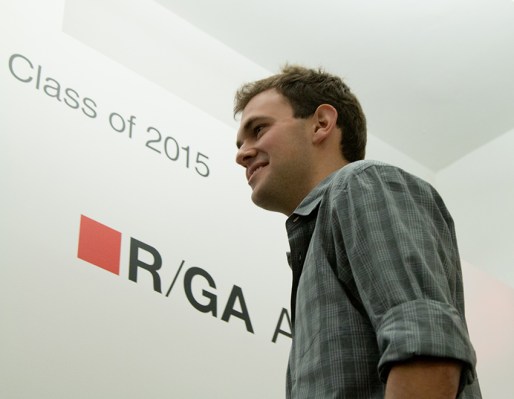Here at the R/GA accelerator Demo Day, powered by TechStars, 10 companies are looking to make a difference in the world.
Back in August, TechStars and R/GA got together once again to form a special kind of accelerator, focused entirely on connected devices and the IoT space. Today, the fruits of all that labor are about to be unveiled, with ten new companies launching into the scene to figure out how the marriage of software and hardware will make our lives better.
We’re here at the demo day to bring you all the live action, and will be updating this post as the companies present.
Lisnr

Lisnr uses high-frequency audio tones to unlock discounts, second-screen experiences, and other engagement opportunities through ambient noise. The idea here is that Lisnr can provide audio tones, ones outside of the range of regular hearing, that will trigger any device into a certain action. If you’re walking through a baseball game and head up to a concession stand, that stand can send you a menu of items or even let you order online. If you head toward the exit of the stadium, the Uber app can be triggered to open up and ask if you need a ride. But it can go down to something much more granular. Lisnr can send you an immediate replay of the big home run direct to your phone.
Lisnr says using audio is the most efficient and scalable standard for this type of interface layer. The company says it’s on pace to book more than $3 million in revenue for 2015, as well as launching major pilots to replace contactless payments and other NFC-based technologies.
Filament
Filament is a nervous system for the industrial internet. Using a Filament node sensor (equipped with a USB port so it can connect to almost any equipment), Filament creates its own network (not WiFi or Bluetooth) so that different pieces of infrastructure can be monitored and even communicate themselves. The sensors have a range of up to 9 miles, meaning that they can be used in a small space like an office or for a space as large as a factory or city.
Filament sells sensors on a monthly subscription model (they call it “Sensors as a Service”) for under $10/sensor/month, and has done over $256,000 in sales for the past six months. With this model, Filament says it’s on track to generate more than $10.5 million in annual recurring revenue going into 2015.
Diagenetix
Diagenetix is helping food producers and farmers keep track of any diseases that may be traveling through their land so that they can stay ahead of problems. As it stands now, farmers walk around their land and check manually for diseases and pests. In fact, every year $75 million in crops are lost from getting sick.
Diagenetix provides a piece of hardware called the BioRanger, which lets food producers take soil samples and test plants immediately. Usually, it costs about 5 days and $70 to test the soil and the plants that may be sick. With Bioranger, it takes $10 and results come back immediately through a companion app.
Bitfinder
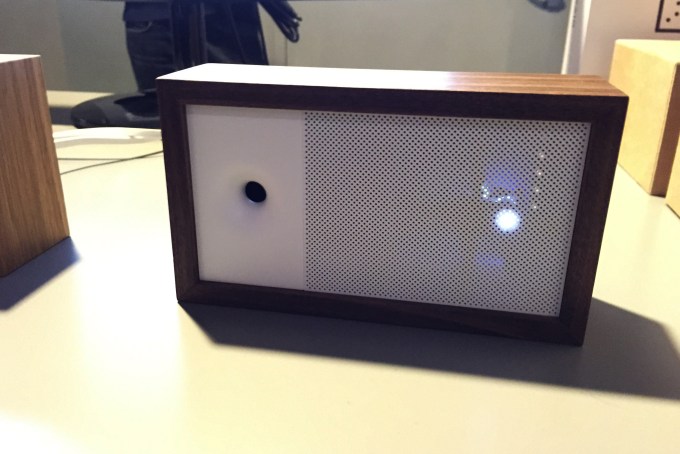
Bitfinder is focused on keeping us in the loop when it comes to the air we breath. Through a product called the Awair, BitFinder gives you actionable data about your home or office environment and offers solutions to solve any problems. The Awair measures ambient temperature, humidity, CO2, dust particles, and VOC (toxic chemicals from rugs, plastics, paints, etc.). If Awair senses that your apartment is dry and stuffy, it’ll recommend that you hydrate and get some fresh air. If the pattern continues, it will recommend buying a good humidifier.
The Awair seems beautifully designed, and is compatible with other IoT products, such as the Nest, to learn about your habits and auto-correct your environment. Bitfinder wasn’t clear about pricing on the Awair.
Astro
Astro is a smart home automation company that focuses on renters. Finally. Unfortunately, Astro is pretty unclear about what its actual product looks like or how it works. They have an upcoming crowdfunding campaign, at which point they’ll actually show their product. All we know now is that Astro wants to provide a totally portable home automation platform/product.
Chargifi

Chargifi is trying to answer the age-old question: “Where is my next smartphone charge coming from?”
Chargifi has created the wireless charging key, meaning that it’s never plugged in to an external source. Instead, the Chargifi charging key uses magnetic resonance to conduct power through a magnetic field. It’s quite similar to how you charge your electric toothbrush. The plan is to integrate these keys into existing furniture in stores, venues, restaurants, etc. around the world.
The company already has plans to launch in multiple five-star hotels in Dubai, has secured contracts with two of the biggest coffee shops in Europe (Cafe Nero and Pret A Manger) and is prepping to launch in 50 bars in NYC over the next few months. But beyond the actual hardware, Chargifi offers a mobile platform that gives brands and venues the opportunity to offer mobile ordering, payments, and data analytics on customers.
Kinetic
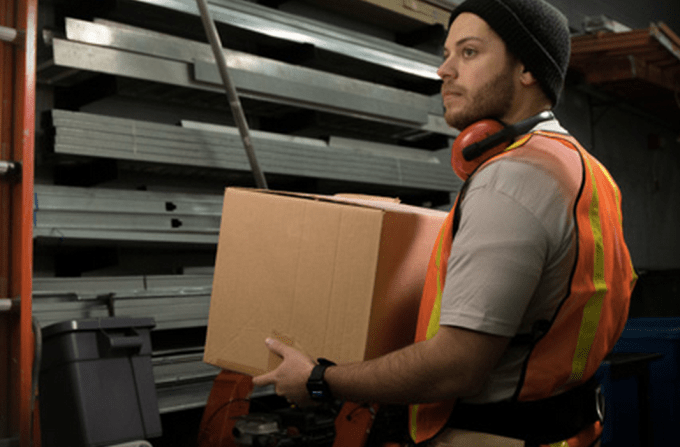
Kinetic is out to protect warehouse workers and other highly physical employees (Amazon warehouse employees, for example) as they go through their days lifting hundreds of heavy boxes so that we can have our goodies in under two days. Kinetic calls these workers ‘industrial athletes’ and realizes that a single back injury can cost a company up to $200k, requiring an added $2.5 million in revenue just to pay for it. These injuries cost companies hundreds of billions of dollars each year, whether it be health care, preventative software, and training.
Kinetic sells a $500 device package (complete with a wrist-worn activity tracker and a backbrace) that determines when a worker is doing a lift, and how risky that lift is. Each high-risk lift gives feedback on how to stay safe and lift properly, and managers can see full profiles for each worker to stay ahead of any health issues. Alongside the original hardware payment, companies using Kinetic will pay $20/month/worker.
Latch
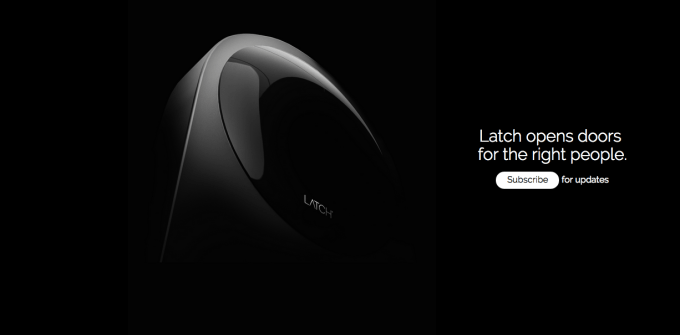
Latch is a smart lock company that is focused on building for the user, not the bad guy. Latch lets you use your smart phone or tablet instead of a key, offering users the ability to set up temporary managers to get in and out of the house. For example, Latch lets you give access to the UPS guy, the plumber, the dog walker, or the nanny, without having to give them a key FOB or make copies.
Like Astro, Latch is keeping things relatively mum, as they plan to launch the product later this year. You can (try) to learn more about it here.
Freedom Audio
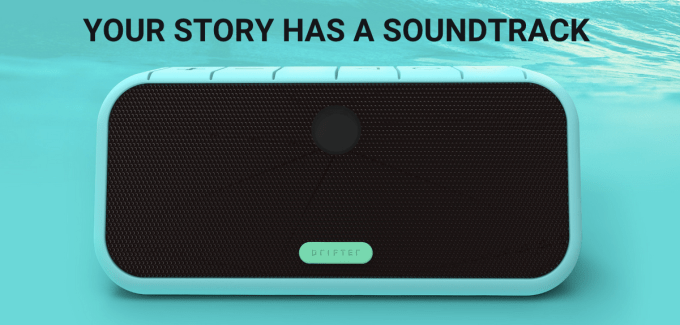
Freedom Audio has a product called the Driftr. It’s a portable speaker that isn’t dependent on Bluetooth the same way that… well, every single portable speaker works. Freedom Audio wants to make a highly rugged portable speaker for the outdoor enthusiast, who simply wants music in places that a smartphone can’t safely go.
The Driftr plays music totally independently from the smartphone by allowing you to download music from various streaming services like Spotify and Beats. At home, the Driftr saves energy by using Wifi, and it of course has a Bluetooth option if you’re just hanging on the patio. But on an adventure, Driftr has its own processor to play downloaded music. And if that weren’t enough, the Driftr is waterproof, floats, and has clips to hook into any existing GoPro mount. The target demographic is the water sports market, which doesn’t have a single option for surfing and listening to music at the same time. Freedom Audio expects to ship in May.
SkySpecs
SkySpecs is looking to make the new world, the one full of drones, a safer place. Instead of leaving a human in charge of the drone entirely, SkySpecs uses technology to make sure that drones can understand the world around them. This way, drones automatically back away before hitting human beings in the face.
SkySpecs was one of our contestants in the Hardware Battlefield during CES this year, and impressed us with the Guardian technology. You can learn more about SkySpecs here.
